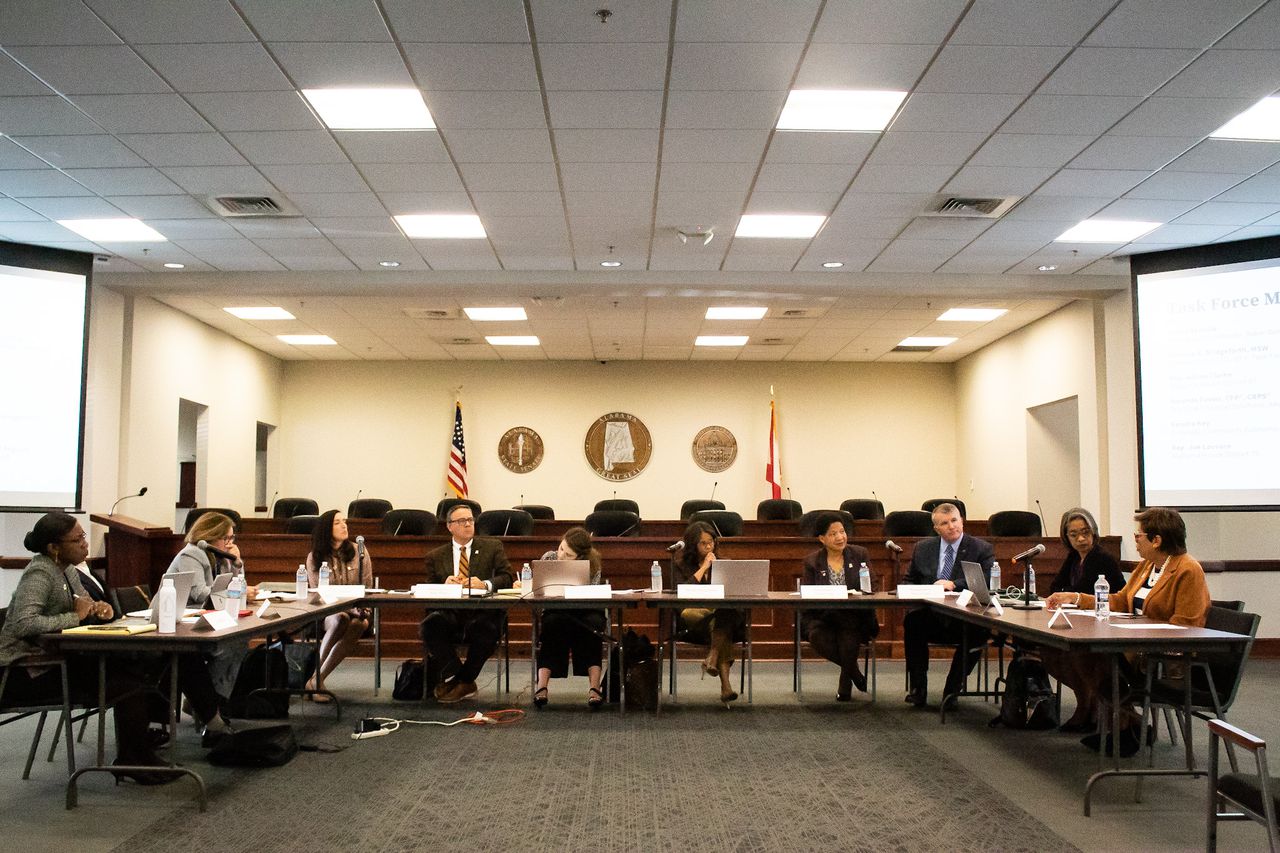Alabama wage gap task force to push for childcare, education legislation
Members of Alabama’s Work Force and Wage Gap Task Force created a list of legislative priorities during their third meeting Monday, including fair practices surrounding wages and hiring, access to quality childcare and education and training to prepare girls for jobs in various fields.
The task force will now begin drafting recommendations for lawmakers. In December, the group will put together a report with research and findings from meetings, along with a final version of their recommendations.
During the first half of the meeting, task force members brainstormed what issues needed to be addressed based on presentations at previous meetings. In the second half, task force members and attendees voted together via an online poll to decide on priorities that members will tackle before the group’s November meeting.
The group broke into three subcommittees: Wages, education and childcare.
The wages subcommittee will tackle issues surrounding compensation, including whether Alabama should take away the ability to ask about salary history on job applications. Prioritizing banning salary history questions received the most support from attendees.
Jenna Bedsole, who is chairing the wages subcommittee, suggested Alabama should follow in other states’ footsteps by removing the question altogether. Alabama’s current statute protects employees from retaliation if they choose not to share their prior salaries rather than preventing employers from asking in the first place.
“The majority of states put the onus is on the employer not to ask, rather than the employee not to tell,” Bedsole said, before recommending adding similar language to the Clarke-Figures Equal Pay Act. “While we want to protect from retaliation, the onus would be on the employer not to even put it on the application.”
The second-most supported priority among attendees was childcare tax incentives, along with support for childcare infrastructure in the state.
Kendra Key, who is chairing the childcare subcommittee, referred to a loan program in effect in Maryland that provides no-interest loans for certain expenses to state-licensed childcare providers, adding that a similar effort could be beneficial to Alabama’s childcare infrastructure.
Key also added that promoting tax incentives for employers could create a fund to offset wages for childcare workers, allowing the low wages in the profession to rise.
“I’m gravely concerned about the wages of childcare professionals,” Key said. “There is a way for employers to really step into their role of helping this ecosystem by contributing and getting some type of credit for it. I think it could help us recruit higher quality — or just high quality in general — employees to childcare centers, and also incentivize the creation of new chapter centers and encourage new people to enter the profession, which we definitely need.”
The education subcommittee, chaired by Amanda Foster, will focus on preparing Alabamians to enter the workforce, including addressing occupational segregation.
Rep. Adline Clarke (D-Mobile), who sponsored the Clarke-Figures Equal Pay Act, said girls in Alabama need to know what careers are available to them. In previous meetings, presenters shared that women in the state traditionally work in lower-wage jobs than men.
“We need to make sure that all industries all schools do a better job of introducing females to various types of work and not limit us so much,” Clarke said. “I think we do girls a disservice by having them think that they can only do a small percentage of the jobs that men can do. It’s all about education, and training.”
The education subcommittee will also look into access to training for women workers in the state, as well as programs like STEM camps.
Members of the Alabama Work Force and Wage Gap Task Force hold their third meeting in Montgomery, Alabama on Oct. 24, 2022.Sarah Swetlik
Melanie Bridgeforth, the task force’s chair, said that the group plans to present between three and five official recommendations at the end of the year. She added that, although legislative recommendations will be limited, all information that the task force has gathered will be presented.
“We obviously can’t have our colleagues at the legislature tackling all of this great stuff, but nothing will not appear in the findings that go to the legislature. I want to be very clear about that,” Bridgeforth said. “Everything we talked about will be a part of the conversation.”
The task force will meet again in November and December before submitting their final report to the state Legislature. Lawmakers will convene the first week of March.
Sarah Swetlik is a gender and politics reporter at AL.com. Her staff position is supported through a partnership with Report for America. Contribute to support her work here.
